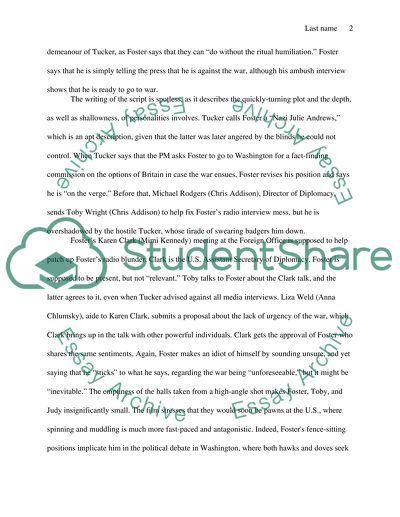Cite this document
(The Art of Meddling in the film In the Loop Movie Review, n.d.)
The Art of Meddling in the film In the Loop Movie Review. Retrieved from https://studentshare.org/visual-arts-film-studies/1414310-english-write-a-review-of-a-film-and-then-examine
The Art of Meddling in the film In the Loop Movie Review. Retrieved from https://studentshare.org/visual-arts-film-studies/1414310-english-write-a-review-of-a-film-and-then-examine
(The Art of Meddling in the Film In the Loop Movie Review)
The Art of Meddling in the Film In the Loop Movie Review. https://studentshare.org/visual-arts-film-studies/1414310-english-write-a-review-of-a-film-and-then-examine.
The Art of Meddling in the Film In the Loop Movie Review. https://studentshare.org/visual-arts-film-studies/1414310-english-write-a-review-of-a-film-and-then-examine.
“The Art of Meddling in the Film In the Loop Movie Review”, n.d. https://studentshare.org/visual-arts-film-studies/1414310-english-write-a-review-of-a-film-and-then-examine.


